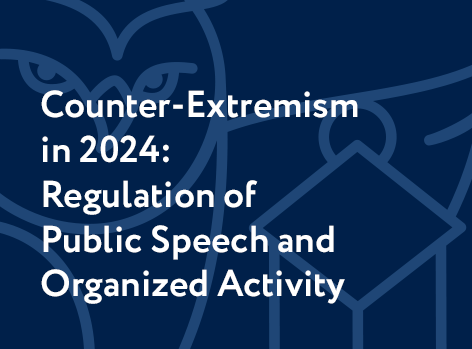The President of Russia approved the law prohibiting those who are "involved" in the activities of an extremist organization from running in elections.
On June 4, 2021, Vladimir Putin approved the law that affects the standards related to "Basic guarantees of electoral rights" and "Elections of deputies to the State Duma". The law prevents the persons in any way "involved" in the activities of an extremist or terrorist organization from running in an election of any government body. The law shall come into force from the date of its publication. It will affect the elections called after the day of its onset.
The draft law was submitted to the Duma on May 4, 2021, by members of the Foreign intervention commission. On May 18, 2021, it was adopted at the first reading. On May 21, State Duma deputy Pavel Krasheninnikov and senator Andrey Klishas made significant amendments to the draft law, while preparing it for the second reading. The second reading took place on May 25, and the third on May 26. The Federation Council approved the law on June 2.
According to the newly adopted legislation, the restriction of the passive suffrage right should apply to everyone who, in the three years preceding the entry into force of the decision to ban the respective organization, was: its founder, member of the collegial steering body, manager, deputy manager, head of a structural unit or its deputy; or within one year before the ban was applied to the respective organization, was: an activist, member, employee, or "any other person involved in the activities" of the organization (for example, provided financial, material, organizational, methodological, advisory, or any other support and assistance).
In the first case (applicable to founders, etc. ) the limitation of passive suffrage will be maintained for five years from the date of entry into force of the court decision banning or liquidating an extremist/terrorist organization. In the second case (involving activists, etc. ) the limitation will be valid for three years after the ban.
Involvement in the activities of an extremist or terrorist organization will include such actions as:
We believe that the wording of the law leaves much room for interpretation. For example, it does not indicate whether a court decision, establishing a person's "involvement" in the activities of a banned organization, should be made within the framework of a separate trial against this very person. Also, the legislation does not provide for a special procedure enabling the court to establish such "involvement". On the one hand, charges under the "extremism-related" articles of both the Criminal code and the Administrative Code can be applied now, and, according to the current legislation, the person brought to justice will still lose their passive suffrage. On the other hand, the articles of the codes are not retroactive. Therefore it is possible to convict a person for financing such an organization only if it's proven that the accused had been aware of their financing extremist/terrorist activities before the process of banning the organization even started.
The problem lies in the arbitrary, broad judicial interpretation of a person's involvement in a particular organization. A separate court decision that a given person is involved in the activities of organization X is not required. It is sufficient for the court to establish such a fact within the framework of the examination of any case in which both the given person and the organization X appear, and where any connection between them is mentioned. This connection itself does not have to be the subject of significant dispute in court, it is often just a general statement that is not even questioned by the lawyer, because the case did not concern the given person, but someone else. In this form, the court may consider the fact of the connection between the given person and the organization X established.
All in all, the adopted amendments indicate a progressive attack on freedom of association in Russia. The ambiguity of the very term, "involved person", may lead to abuse in the enforcement of the law. Also, the constitutionality of the introduction of such indefinite limitations on passive suffrage (especially those extending to the period preceding the law's entry into force) raises serious doubts among legal experts. In this case, deprivation of the right to run in an election can be considered a form of punishment, which, according to Art. 54 of the Russian Constitution, cannot be imposed for actions that were not illegal at the time of their accomplishment.
Originally published by SOVA Center for Information and Analysis at https://www.sova-center.ru, translated with permission.



